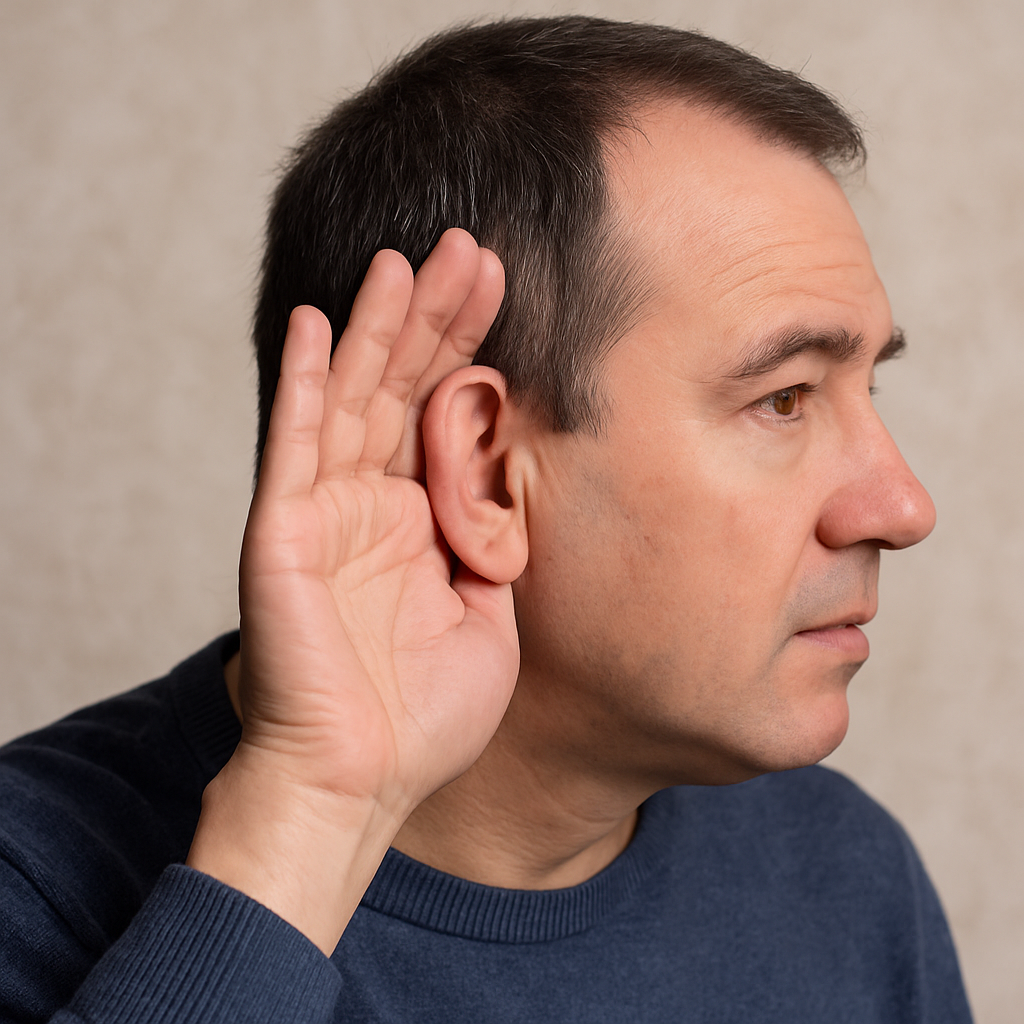
Understanding Hearing Loss: A Growing Health Concern(Hearing Loss)
Hearing loss is not merely an inconvenience—it’s a critical health issue that affects millions of people globally, impacting their communication, relationships, mental well-being, and overall quality of life. While it’s often associated with aging, the causes of hearing loss are diverse, and many are preventable. Recognizing the common causes of hearing loss early can prevent permanent damage and improve long-term outcomes.
## Age-Related Hearing Loss (Presbycusis)(Hearing Loss)
One of the most prevalent causes of hearing loss is age-related degeneration of the auditory system, known as presbycusis. This condition typically affects individuals over the age of 60 and progresses gradually. The hair cells in the cochlea—responsible for transmitting sound signals to the brain—deteriorate over time. Symptoms often begin with difficulty hearing high-pitched sounds or following conversations in noisy environments.
## Noise-Induced Hearing Loss (NIHL)
Exposure to loud noise, whether sudden or cumulative, is a major contributor to hearing loss. Listening to music at high volumes through earbuds, operating loud machinery without protection, or attending concerts regularly without earplugs can all cause irreversible damage. NIHL is one of the most preventable types of hearing loss, yet it continues to rise among younger populations.
## Ear Infections and Chronic Otitis Media
Chronic ear infections—especially those that are untreated or recurrent—can lead to conductive hearing loss. Infections such as otitis media cause inflammation and fluid buildup in the middle ear, which can disrupt the transmission of sound. In severe cases, repeated infections may lead to permanent structural damage, including perforated eardrums and ossicle deterioration.
## Ototoxic Medications and Chemical Exposure
Certain medications are ototoxic, meaning they are harmful to the inner ear structures. Drugs such as aminoglycoside antibiotics, loop diuretics, chemotherapy agents, and even high doses of aspirin can cause temporary or permanent hearing damage. Furthermore, exposure to industrial chemicals like solvents or heavy metals can exacerbate ototoxic effects, particularly in occupational settings.
## Genetic and Hereditary Factors
Hereditary hearing loss may present at birth or develop later in life due to inherited genetic mutations. These forms of hearing impairment may affect the inner ear’s structure or the auditory nerve’s function. Syndromic forms of hearing loss, such as Usher syndrome or Pendred syndrome, are often accompanied by other medical complications.
## Head Trauma and Physical Injuries
Traumatic injuries to the head, skull, or ear structures can cause both conductive and sensorineural hearing loss. Blows to the head, car accidents, or sports injuries can damage the eardrum, dislocate ossicles, or affect the auditory nerve directly. Immediate medical attention is critical to minimize permanent damage in such cases.
## Earwax Blockage (Cerumen Impaction)
While seemingly minor, impacted earwax can lead to significant hearing loss. A buildup of cerumen in the ear canal may block sound from reaching the eardrum, leading to temporary conductive hearing loss. Symptoms include muffled sounds, ear discomfort, and sometimes tinnitus. Safe removal—preferably by a professional—is key to restoring normal hearing.
## Autoimmune and Systemic Diseases
Autoimmune inner ear disease (AIED) is a rare but serious condition where the immune system mistakenly attacks inner ear components. Other systemic diseases such as diabetes, multiple sclerosis, and vasculitis can also impair auditory function by damaging blood vessels and nerves vital to hearing. Early diagnosis and proper disease management are essential in preserving hearing ability.
## Tumors and Acoustic Neuroma
Benign growths such as acoustic neuromas—tumors on the vestibulocochlear nerve—can compress nerves involved in hearing and balance. Symptoms typically develop slowly, starting with one-sided hearing loss, tinnitus, and balance issues. MRI imaging is often necessary for diagnosis, and treatment may include surgery or radiation therapy.
## Sudden Sensorineural Hearing Loss (SSHL)
SSHL is a medical emergency characterized by a rapid, unexplained loss of hearing in one ear, often occurring within 72 hours. It may be linked to viral infections, vascular blockage, or autoimmune causes. Immediate treatment with corticosteroids can potentially reverse the loss if administered promptly.
## Meniere’s Disease and Inner Ear Disorders
Meniere’s disease causes episodes of vertigo, tinnitus, fullness in the ear, and fluctuating hearing loss, typically in one ear. It’s associated with abnormal fluid buildup in the inner ear and can severely disrupt daily life. Dietary changes, medications, and surgical interventions may help manage symptoms.
## Conclusion: Prioritize Hearing Health
Ignoring hearing loss can lead to social isolation, depression, and even cognitive decline. By understanding and addressing these common causes of hearing loss, we can take proactive steps to protect auditory health. Regular hearing screenings, prompt medical attention, and protective strategies are essential for preserving one of our most vital senses.
Protect your hearing now—because once it’s gone, it rarely comes back.
READ MORE:
https://fitsyfit.com/what-is-the-prostate-and-why-it-is-important/